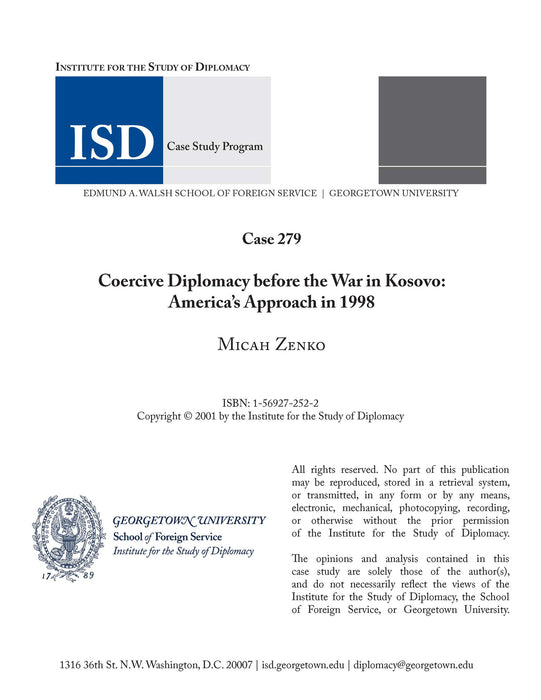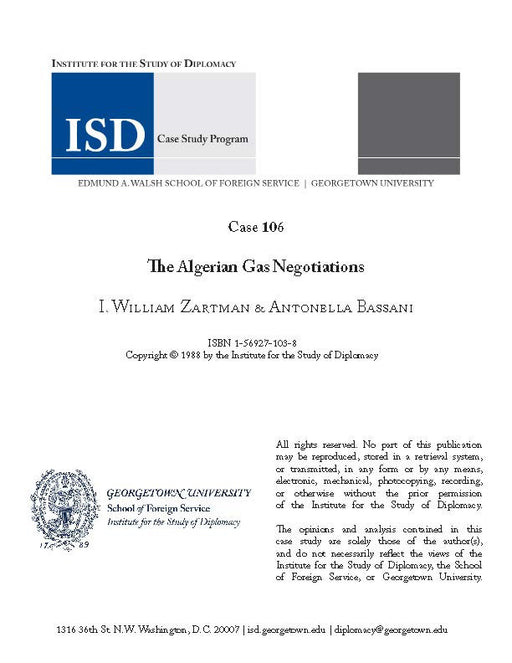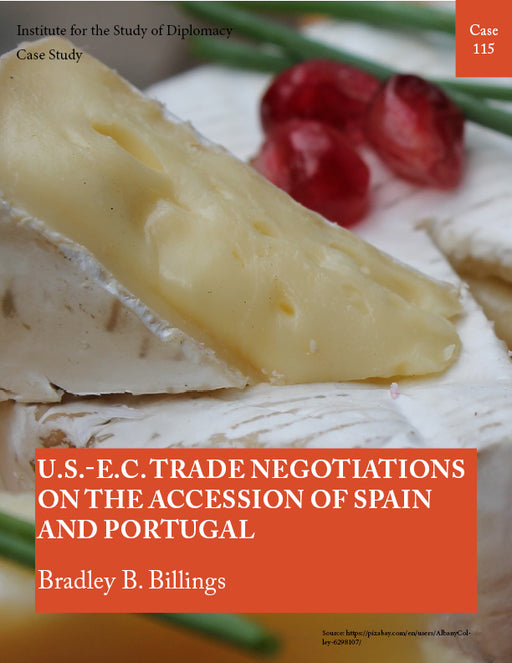Case 279 - Coercive Diplomacy Before the War in Kosovo: America's Approach in 1998
Zenko, Micah
After several years of simmering ethnic tensions, Kosovo exploded in 1998. Serbian military forces began a series of offensive campaigns against the Kosovo Liberation Army (KLA), and its suspected bases of support. As a result, by early fall 300,000 Kosovar Albanians had been forced from their homes to face a brutal winter without shelter.
This case study examines the Clinton administration’s September 1998 decision to use coercive diplomacy to halt Yugoslav President Slobodan Milosevic’s brutal assault on Kosovar-Albanians. It incorporates multiple learning tools to help students develop a strong understanding of the complexities of crisis decision-making, the intricacies of intervention, and the frustrations of multilateral action. The case also addresses intervention in ethnic crises, the role of signaling in international diplomacy, and the limits of coercive diplomacy. An exercise is included in which students create a position representing their department, and press for its acceptance at a National Security Council meeting.



